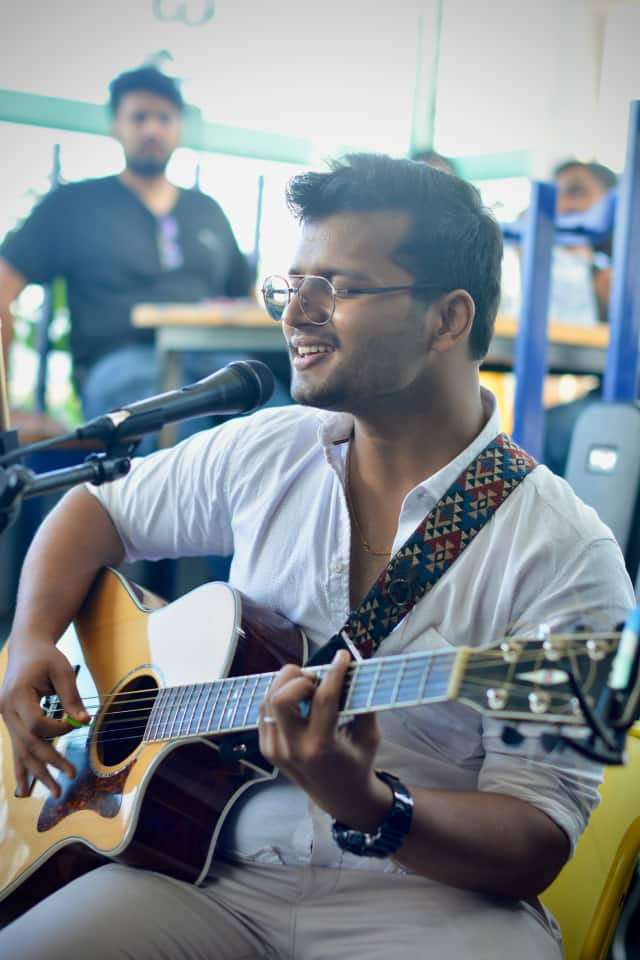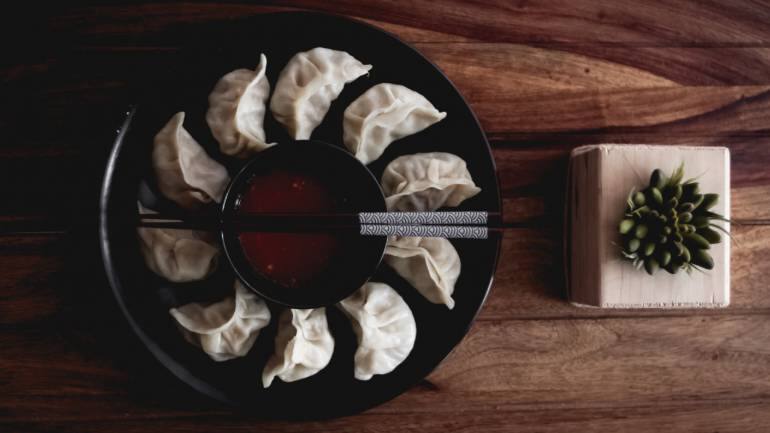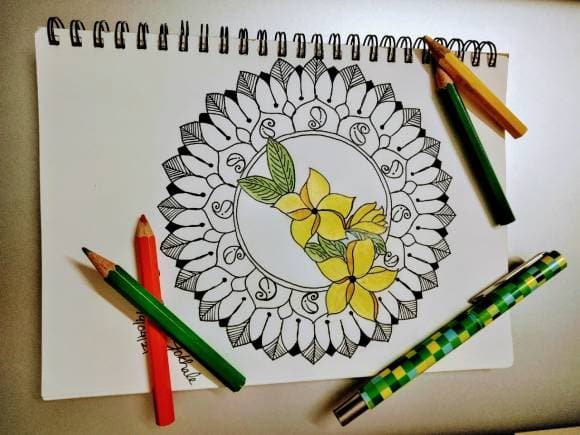



The pandemic took away so much this past year. It took away jobs and experiences, hampered weddings and graduations, challenged safety and certainty. For some of us, it took away people we love.
But one of the things the pandemic gave us was more time on our hands. If one long-term manifestation of this was/is the great resignation (essentially people asking if their jobs really align with their priorities and what they want to be doing with their time), another was/is to think about what we like doing/making/learning.People found new hobbies, new perspectives, new goals - and took to them in great numbers during the pandemic. Baking, for example, became a global pastime. Banana breads and breads came out of ovens all over the world, and were tweeted and Instagrammed and Snap-ped and YouTube-d and DM'd with delicious regularity. It even led to a shortage of yeast as new bakers flocked to YouTube to learn how to whip up confections and staples in their ovens.Of course, depending on our preferences, we took up other hobbies too. From gardening to crotchet, the comment boxes of popular YouTube channels were filled with comments from people who'd taken up the activity "lately", "just now", "during the pandemic". There were some instant successes and much "how did you do that?" And we reaped some benefits along the way, too.
Mental health benefitsDr Samir Parikh, Director, Mental Health and Behavioural Sciences, Fortis Healthcare, says: “Covid has been a very difficult experience for most. People who were able to spend meaningful time with their families or pick up a new hobby, read, listen to music or develop a creative skill were able to deal better. Learning a new skill shifts the focus away from any anxiety you might have.” “When you’re enjoying taking part in a hobby, it’s easier to be curious, investigative and playful, and you’re less likely to feel stressed or snappy. It also brings a sense of hope, optimism and positivity,” Dr Parikh adds. For Ajay Varghese a law student and professional dancer, learning to sing and play the guitar became a fantastic way to relax and feel productive during the lockdown in Trivandrum. “How many series can you binge watch on OTT platforms? Bored with all the time at hand I started learning to play the guitar by watching YouTube videos and taking online classes. I then went a step ahead and started taking vocal classes. I would practice 8-10 hours a day and it would really take my head off the stress of not knowing what the future held for me. The fact is I would never have gotten the amount of time I did during the pandemic which helped me get good at both singing and strumming the guitar,” says Varghese. He now regularly performs at events and his first album of songs will be released on music streaming platform Spotify in early 2022. Lawyer turned singer Ajay Varghese.
Lawyer turned singer Ajay Varghese.A lot of the time we are scared to try something new for fear of looking bad or we put pressure on ourselves to be perfect straight away. Being at home removes this barrier. We can get the moves of a dance routine mixed up without bumping into someone or stepping on their toes. We can fall over and have a good giggle at ourselves while trying to manoeuvre our arms and legs into a yoga pose.
Tirthankar Das, a journalist, started making YouTube videos and found the whole experience to be both therapeutic and productive on many levels. “I could always make people laugh with my silly jokes. During lockdown there was so sadness around that I realized I could put this skill to good use. I started making funny videos on the Bangla way of life and posting it on YouTube. The response was overwhelming and encouraged me to post every single day. Making videos became my stress buster and a way to divert my mind away from the mundaneness of each day,” says Kolkata-based Das.In a pandemic where everything seemed a little out of control, hobbies were the one thing that could provide structure and give us back a sense of personal control. Apart from being a source of fun it gave us a sense of control and pride. That feeling of, 'Wow! I did that!"Hobbies that became serious businessWhat started as a pandemic-time hobby quickly turned into a small food business for Chitrangada Gupta. “I lost my job in the first lockdown. And though I was living with my family, I was scared for my future," says Gupta.
One thing led to another, and Gupta started making Darjeeling-style momos at home. "My maternal side of the family hails from Ghoom, a small town near Darjeeling," she explains.
That hobby has now turned into a small business. "We launched Boju’s Kitchen along with my mom and grandmom. The home kitchen brought us together as a family, and also gave us a purpose to make out little baby grow,” says Gupta who is set to launch the first retail outlet of Boju’s Kitchen in Gurgaon.
 Darjeeling-style momos from Boju's Kitchen.
Darjeeling-style momos from Boju's Kitchen.Mumbai-based business analyst Swapnali Gokhale's pandemic hobby-turned-business had a somewhat different graph. “I came across mandala art in the lockdown and started sketching with the help of references from Instagram and Pinterest. With hours of practice I got good at it and made a few calendars as gifts for family and friends. When people started showing interest in purchasing them, I ended up selling quite a few of them in 2020 and I have almost the same orders for this year too.” she says.
Gokhale says she felt calm while making the Mandala drawings. “I used to be very anxious. But once I started drawing regularly, my anxiety reduced and I started enjoying it. It was something I would look forward to every day during the lockdown.”
 Swapnali Gokhale's Mandala Art
Swapnali Gokhale's Mandala ArtAccording to Aakriti Joanna, founder of the online mental health platform Kaha Mind, spending time doing something you enjoy ultimately helps you heal, improve your well-being and reduce stress. “Sustaining a hobby involves patience. It forces us to think differently, helps us push ourselves to get better at our hobby and makes us realise that productivity can even be measured in terms of enjoyment. Colouring has been hugely effective for dealing with anxiety and bringing about a sense of calm. Sometimes, using art materials can also help one process their feelings and discover new behavioural patterns about themselves,” says Joanna.
Pandemic hobbies with a causeA quieter social calendar gave independent writer Reem Khokhar more time to pursue her passion for dance which had fallen by the wayside. Dance videos she made with her then 10-year-old niece, called ‘Lockdown Boogie’, became an instant hit.
“We would practice on video calls, record it and share with friends and family on social media. We did 15 of those and continued to make videos even after the lockdown with friends in different cities,” says Khokkar who also launched a social version of the video called Boogie for a Cause where people interested to learn and dance with her would make a donation to a specified NGO.
Dance has offered mental and emotional relief to Khokhar, who has been dancing every single day for the past 154 days (as of the date of this interview). Her goal is to dance every day for 365 days straight. “I have hardly gone out since the pandemic. Dancing has been my refuge, and it has kept me sane," she say. "It helps me slow down and focus on the now.”
Discover the latest Business News, Sensex, and Nifty updates. Obtain Personal Finance insights, tax queries, and expert opinions on Moneycontrol or download the Moneycontrol App to stay updated!
Find the best of Al News in one place, specially curated for you every weekend.
Stay on top of the latest tech trends and biggest startup news.